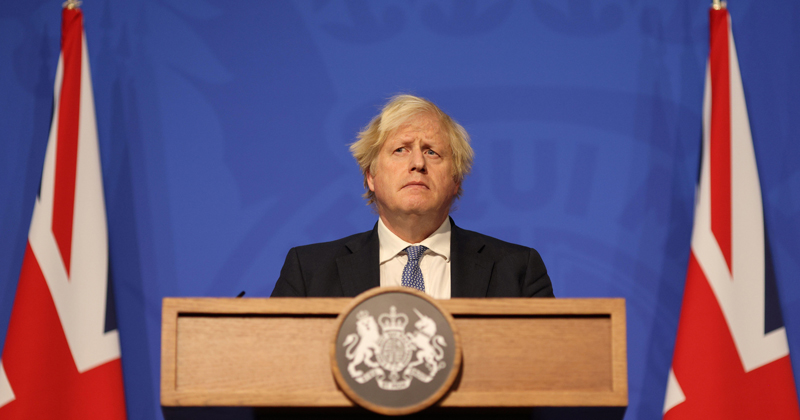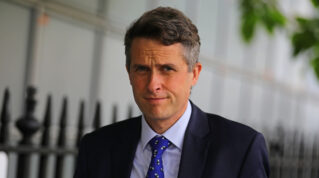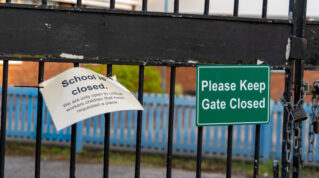The former prime minister Boris Johnson considered sacking education secretary Sir Gavin Williamson after the summer 2020 exams fiasco, the Covid inquiry heard.
Johnson, prime minister from 2019 to 2022, gave evidence at the Covid inquiry today as it continues its focus on the impact of the pandemic on children and young people.
It was “surprising” that key figures in the Department for Education felt they had to be told to develop plans for school closures, he said.
Johnson also admitted faults with the way grades were awarded in the summer of 2020 and that he could have taken the decision to close schools again in January 2021 sooner.
In a furious message to his advisors during the exams scandal, he said it was in a “homicidal mood” and wanted an “agenda of reform” at the DfE.
A WhatsApp message sent by Johnson to his senior advisers in August 2020 also revealed he considered sacking Williamson in the fall-out of an algorithm being used to modify centre assessed grades.
Here’s everything you need to know…
School closures had ‘come up repeatedly’
Much of today’s evidence focused on Johnson’s response to Williamson’s evidence at the inquiry last week.
Williamson claimed power had become “increasingly centralised” throughout the pandemic and that he “needed permission to basically act” from Downing Street.
He had not developed an impact assessment plan for school closures because it was not commissioned. His permanent secretary at the time, Jonathan Slater, also wrote to the inquiry similar concerns over not being asked to develop a contingency plan.
The inquiry heard that school closures were first discussed in a Scientific Advisory Group for Emergencies (SAGE) meeting on February 4, 2020.
Referencing this, Johnson said: “I’m not sure I agree with the idea that there was no planning for school closures, because if you look at the sequence from February onwards, its clear that SAGE is talking about the possibility. The cabinet is discussing it in March, certainly. I remember the subject coming up repeatedly.”
He added: “Frankly, I would have thought [Slater] as the head of the DfE would have picked up from discussions that would be going on from February onwards, that there was work to be done in this area.”
The DfE then produced a document on March 15 which outlined some of the potential impacts of school closures on disadvantaged children. Johnson repeatedly referred to this document as evidence planning was taking place.
Takes ‘full responsibility’ but ‘denies’ systematic failures
Counsel to the inquiry Claire Dobbins KC asked Johnson whether his and Williamson’s differing evidence showed a systematic failure in government to properly plan for the closure of schools.
In response, Johnson said he “takes full responsibility” for all decisions taken and mistakes made, but that he denied systematic failures.
“I would accept that the reality was slow to dawn on government, generally, about the full horror of Covid,” Johnson added.
Dobbins also asked Johnson for his response to earlier evidence given by Jon Coles, chief executive at United Learning academy trust. Coles accused the DfE of a “dereliction of duty” for failing to plan for closing schools.
The former prime minister said: “Respectfully, I’m not inclined to accept the idea that people fell down greatly in their duty. I think people were overwhelmed by the speed of events and when the facts changed, they had to change policy, and I had to change policy.”
Summer exam system ‘clearly failed’
Echoing Williamson last week, Johnson said the decision to use an algorithm to modify centrally-assessed grades for GCSE and A-level examinations in the summer of 2020 “clearly failed”.
He said it “arose from good intentions which was to try and protect the integrity of the examination system in a difficult year, with nightmare consequences”.
In a WhatsApp message sent from Johnson to his chief advisor Dominic Cummings and communications director Lee Cain on August 21, he complained his Scottish holiday had been disturbed so he was “back in Chequers and in a thoroughly homicidal mood”.
“We need a plan for the Dept of Education. We need a perm sec and we need better ministers and quite frankly we need an agenda of reform. We can’t go on like this, I am thinking of going into number ten and firing people”.
Slater then stepped down from the DfE on August 26.
Johnson confirmed to the inquiry he did consider sacking Williamson, but decided not to. The inquiry previously heard that Williamson also offered to resign over the issue.
January school closures ‘could’ve been taken sooner’
Johnson said the decision “could’ve been taken sooner” to close schools again in January 2021.
Williamson and the current permanent secretary of the DfE, Susan Acland-Hood, both told the Covid inquiry they had confidence in plans to keep schools open through a mass testing regime.
But Professor Chris Whitty, chief scientific adviser during the pandemic, said yesterday that the new alpha variant in January was “substantially more transmissive” and rendered efforts “moot”.
A decision was then taken to close schools on January 4, when some primary settings had already returned that day.
Johnson said closing schools again was “the last thing I wanted to do” and that it was a “really low moment” in government.
Williamson had criticised the decision to close schools in January during his evidence session, arguing it was not made in the in the interests of children.
Responding to this, Johnson said: “Gavin rightly owned the interests of schools and young people – he had to promote that. I had the problem of trying to balance the interests of the entire country, and every single potential Covid victim, and it was hellishly difficult.
“But in the end we had to take the public health issue and we had to put it first.”















Your thoughts